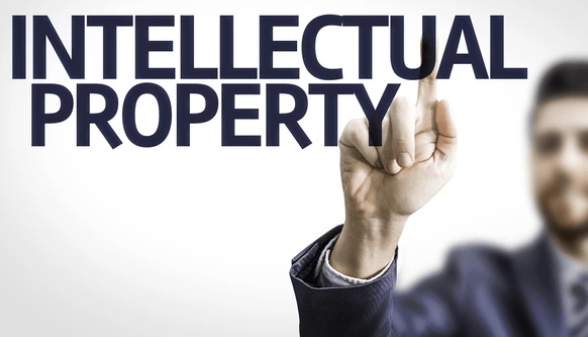The intellectual property (IP) licensing has gone a long way with the pace of technology…
Can Celebrity Catchphrases be Intellectually Protected?
Introduction
A catchphrase is defined as a term, phrase or sentence repeatedly used by an entity to the point of it becoming famous as well. Some classic examples of catchphrases in the commercial market include Nike’s “Just Do It,” KFC’s “Finger Lickin’ Good,” Thums Up’s “Taste the Thunder,” Redbull’s “Give you Wings,” among others. However, outside the realm of brand marketing, when celebrities make use of a phrase, to the point of it becoming associated to them, it becomes a catchphrase of their own. Some famous examples of celebrity catchphrases include John Cena’s “You can’t see me,” Navjot Singh Sidhu’s “Thoko Taali,” Paris Hilton’s “That’s Hot,” Taylor Swift’s “This Sick Beat,” among others. Such catchphrases may become famous due to the backstories of their origination, the way they are said, the meaning or humour behind them, or because of their mere association to the particular celebrities.Regardless of the reason behind their fame, catchphrases hold a lot of influential potential, and may lead to immense growth in the brand value of the individual or entity involved.
Commercial and Social Impact of Celebrity Catchphrases
Several catchphrases gain fame due to them being associated with celebrities or featuring in famous movies, songs or other art forms, such as “Hakuna Matata” from The Lion King. However, numerous catchphrases have led to the fame of the individual involved; for instance, Danielle Bregoli, while appearing on a Dr. Phil episode in 2016, famously uttered the words “Cash me outside, how boutdah?” Bregoli instantly became an internet meme worldwide, and her catchphrase gained much media attention, getting her worldwide recognition as the “Catch me outside girl.” This reportedly led her to secure appearances worth $30,000, and widening her social media presence.[i]She had also threatened to sue Walmart for using the phrase on their sweatshirts and t-shirts.[ii]
American media personality Paris Hilton used her now trademarked catchphrase “That’s Hot” in reality TV show The Simple Life routinely. She trademarked the term in February 2007, and since then, it has become her “signature catchphrase.” Hilton was credited as one of the most influential media personalities in the 2000s with numerous people quoting her on the internet. She later went on to file an injunction suit against Hallmark Cards Inc. for using her trademarked phrase in their cards, thereby infringing on her rights. They ended up settling the case outside the court.
Therefore, catchphrases can not only help exponentially increase an already established celebrity’s brand value but also make the careers of some and build their brand value.
Catchphrases in Copyright and Trademark Law
Copyright law guarantees artists the protection of their creative work while allowing others to expand upon it through its legislations. In India, the Copyright Act, 1957 aims to protect original works pertaining to literature, drama, sound recordings, musical, artistic and cinematographic works from unauthorized usage by third parties.[iii]Therefore, a copyright’s main objective is to provide protection to the original content creator.Copyright aims at protecting expressions instead of broad ideas; an idea or a concept is not copyrightable. Additionally, names, titles, phrases, combinations, slogans, etc. are generally not protected by copyright law. Copyright law gives primacy to originality, and opines that a work must be original in order to get protected by it. Therefore, getting a copyright for a catchphrase may be a tedious task since a combination of words or a phrase does not amount to an original work. Moreover, many opine that granting copyright to phrases may lead to a detrimental effect on creativity.
[Image Sources: Shutterstock]

Individuals seek protection of their catchphrases not just to make money from producing goods and services with them but also to legally stop others from distributing goods and services with their creation.
Positionin India
Indian judicial position regarding copyright and trademark of celebrity catchphrases is not clear. However, brand catchphrases, slogans, and tag lines have been given intellectual protection by the judiciary; several argue that the same could be applied to celebrity catchphrases to provide some clarity on the subject matter.
In Godfrey Phillips India Ltd. v. Dharampal Satyapal Ltd. &Anr., the High Court of Delhi[iv] held that “Shauq Badi Cheez hain” is an ordinary combination of words of common use. Therefore, the same cannot be protected under Indian Copyright law as a literary or artistic work but could be protected under passing off law if a case is made for it. In Reebok India v. Gomzi Active[v], the Karnataka High Court held that an individual must establish the secondary meaning and goodwill secured by their slogan for it to claim “distinctive use.” The phrase “I am what I am” was argued to be generic and hence, could not be protected due to distinctive use. In Raymond Limited v. Radhika Export and Anr.[vi], the Bombay High Court held that Raymond had developed goodwill and considerable market reputation over the years due to their slogan “The Complete Man.” Therefore, the defendants were instructed not to use the same.
Hence, complying with the set stance, for a celebrity catchphrase to be intellectually protected in India, it ought to show its distinctive nature, goodwill, and market reputation.
Conclusion
Indian intellectual property laws and judiciary’s position on the trademark of celebrity catchphrases is a bit shaky. However, the surrounding laws and positions regarding phrases and terms, in general, can be made use of in order to set firm grounds for the future. Trademark of celebrity catchphrases has been a long-existing phenomena worldwide. Outside India, the grant of intellectual protection to catchphrases has been given on a different basis. For instance, in the U.S.A., trademark protection has been granted to catchphrases largely on the basis of creativity, distinctiveness, and proximal association of the brand with the good or service.[vii] For instance, Cardi B was denied the trademark rights to her catchphrase “Okurrr” because it was already widely in use. Whereas, Disney was provided the trademark of “Hakuna Matata” in 2003 even though it was an already existing Swahili phrase because of the extensive use of the term in the Disney movie, “The Lion King.” However, the trademark is limited to clothing, shoes, hats, etc. only.
Seeking intellectual protection of celebrity catchphrases is an important fight for some because of either their own brand value or the phrase’s significance. While the copyright laws in India are pretty harsh in providing protection for the same, the trademark laws provide enough grounds for one to seek protection.
Author: Kritika Singh, in case of any queries please contact/write back to us via email to chhavi@khuranaandkhurana.com or at IIPRD.
[i] https://www.businessinsider.in/retail/a-14-year-old-girl-who-became-famous-overnight-is-feuding-with-walmart/articleshow/58521122.cms
[ii]Id.
[iii] §13, The Coyright Act, 1957.
[iv]2012(51)PTC 251(Del).
[v]2007 (34) PTC 164 (Karnataka).
[vi]Commercial IP Suit (L) No. 541 of 2019.
[vii]427 F.2d 823 (C.C.P.A. 1970).



